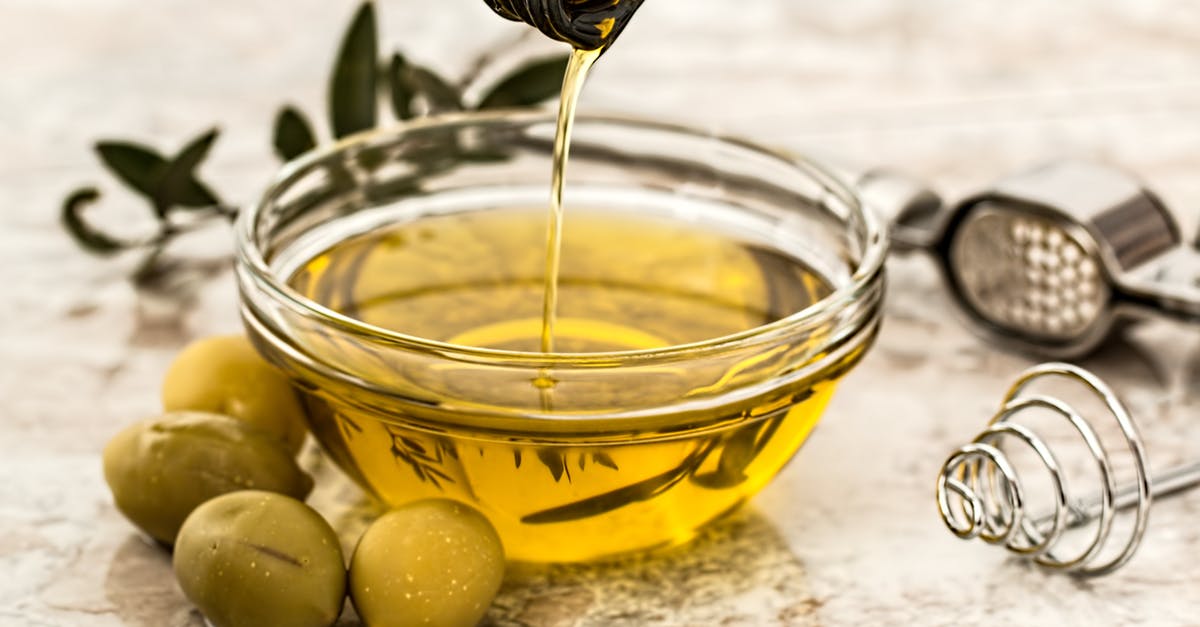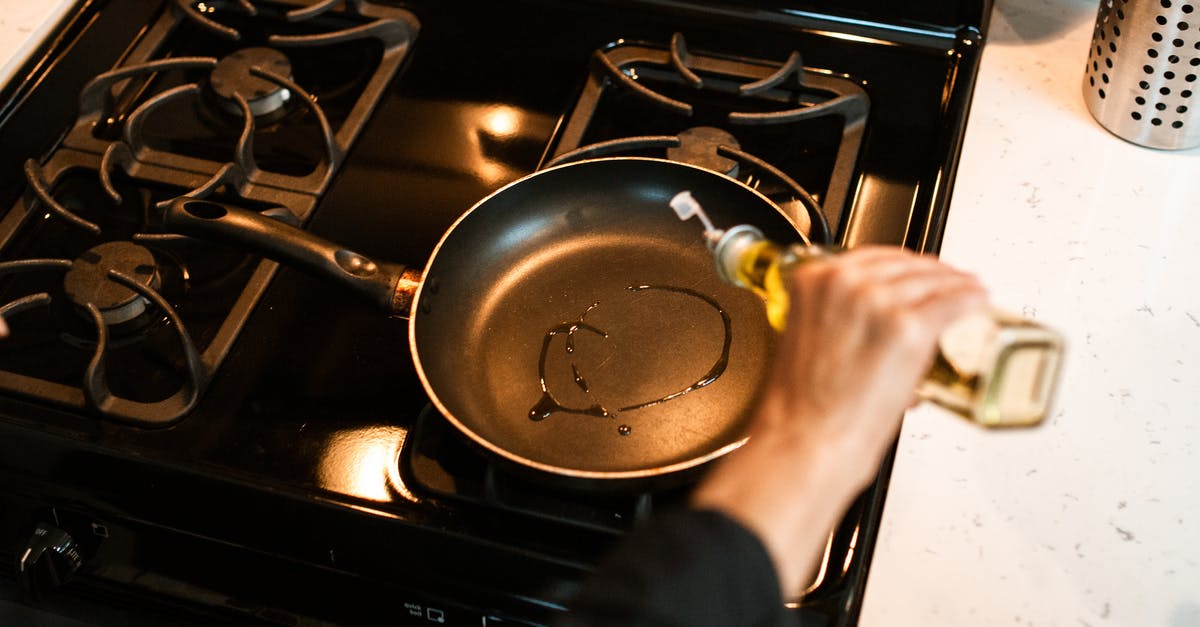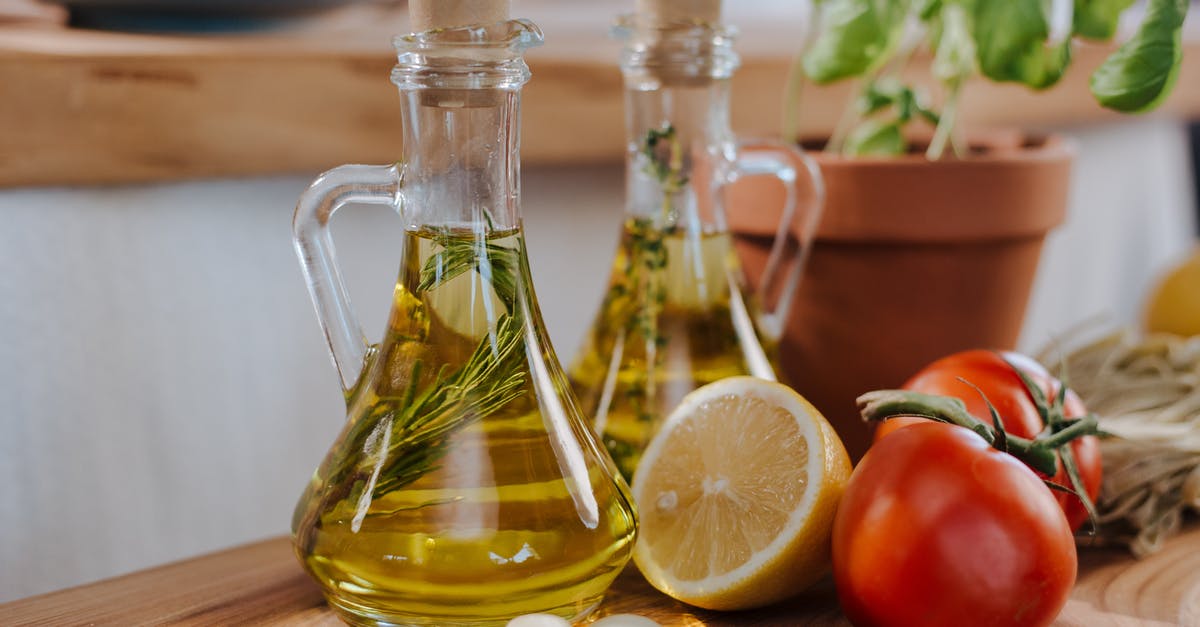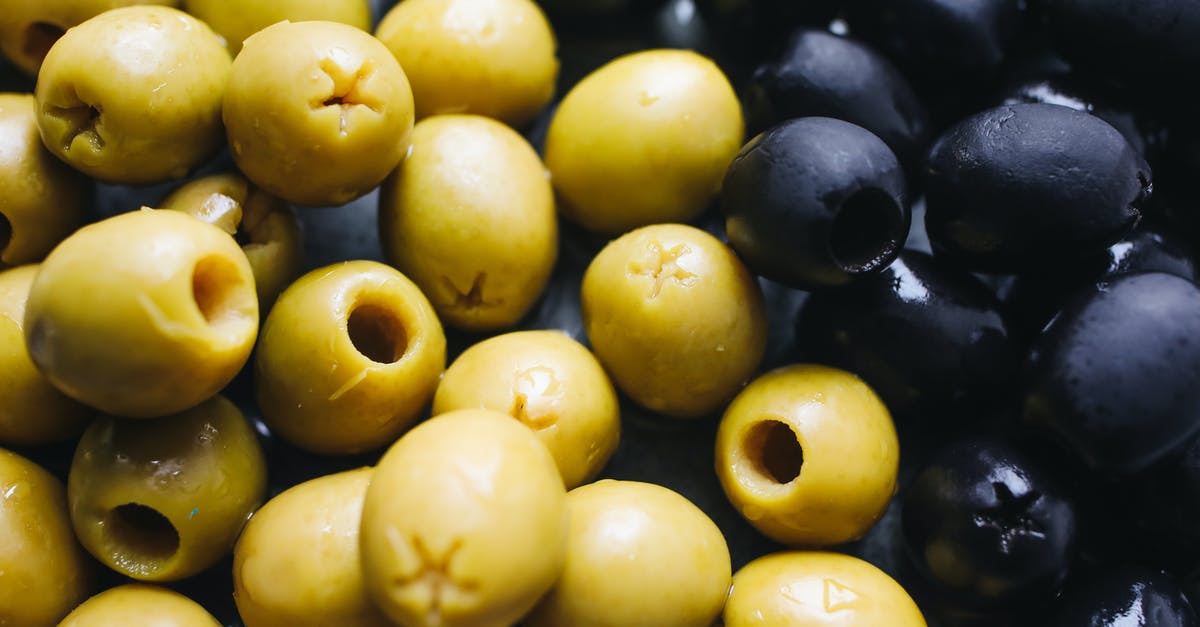What makes for good olive oil?

It's been years I've been pondering this question. When I go to the store, the olive oil section has a vast array of offerings with a great range in prices.
With that in mind:
- Does higher price necessarily mean better olive oil?
- What distinguishes good olive oil from bad olive oil?
Best Answer
The problem is that there are different types of olive oil that are used for dramatically different purposes.
A high quality 'cold pressed extra virgin' oil often has fruity notes that are destroyed when you heat it, but is great for drizzling over things at the last minute, or cold applications such as salad dressings ... but note that the US labeling laws are lax, so something labeled as 'extra virgin' in the US may not qualify as such in Europe.
For most cooking, I use a good grade olive oil ('virgin', but not 'extra virgin') for cooking with, not the extremely expensive stuff.
For frying, there's 'extra light' olive oil which has a higher smoke point but little to no flavor on its own. It's refined to such a point that you might be better off just going with any neutral flavored oil (canola/rape, soy, corn, etc.)
Price depends on a lot of things, and a lot of it's marketing and worthless -- if you can, I'd look for other signs of quality ... like if there's a packing date. Older oil is more likely to have deteriorated, and in a worst case, have gone rancid. (more likely if it's in a clear glass bottle ... if you're buying large amounts of oil, keep it out of sunlight, or even better, buy it in a can) Note that packing dates can also be cheated -- they might press the oil, then hold it for months before it's actually bottled for sale.
Also beware of 'blended oils'. This is when they cut olive oil with something less expensive, but still try to pass it off as 'olive oil'.
'Imported from Italy' is another suspect label, as it might be foreign olives that were sent to Italy before being imported. (but there's nothing wrong with non-Italian olives ... the Greeks and Spanish make some great olive oils, and we're starting to see more American olive oils).
...
Also note that olive oil can be classified like wines -- some companies might press a single variety of olive (eg, Kalamata, Castelvetrano), which can have dramatically different flavors. They might be fruity, grassy, buttery, or even peppery. Regions can also have an impact, as some areas press olives while green, and others wait until they're black.
I won't get into these, as that's more a matter of personal taste.
Pictures about "What makes for good olive oil?"



Quick Answer about "What makes for good olive oil?"
What we're really looking for in extra virgin olive oil is low acidity (1 per cent or under) and a high rating (6.5 plus) for organoleptic qualities – meaning how good it smells, tastes and looks.Are you buying the right olive oil?
More answers regarding what makes for good olive oil?
Answer 2
Of course you can always pay too much for olive oil (as for anything), but if you pay too little, you can conclude you cannot possibly be getting a true, well made extra virgin olive oil. According to one finicky producer of excellent EVOO, De Carlo, a price of 8 euros per liter would barely cover his costs. So take it as a warning if you pay less.
The cost derives from the need for "healthy, expertly picked olives, milled within 24 hours of their harvest to preserve flavors and avoid spillage."
The info here comes from a pleasant book, "Extra Virgin" written in 2012 by Tom Mueller.
I don't pretend to be able to identify all these deficiencies myself, but the official European guidelines say that even a hint of any one of these defects, when tasted by professionals in a blind test, makes an olive oil fail to be extra virgin: "rancid," 'fusty," winey/vinegary," "muddy sediment," "metallic," "esparto," "grubby."
So an EVOO is one that lacks those defects.
Answer 3
The first step is making sure that you are actually getting olive oil. There have been huge problems with olive oil that turned out to be just plain counterfeit (as in blended with other oils, mislabelled, adulterated in other ways) in recent years; how prevalent that problem is in your local market is very dependent on locality, on your grocer's or favorite brand's buying policy, and other factors...
Once you have actual olive oil, it is a matter of taste unless you want certain (fresher, purer) grades for their health benefits.
Sources: Stack Exchange - This article follows the attribution requirements of Stack Exchange and is licensed under CC BY-SA 3.0.
Images: Pixabay, RODNAE Productions, Ron Lach, Polina Tankilevitch
